July 31, 2023 •
Close the Revolving Door Act Introduced in U.S. Senate
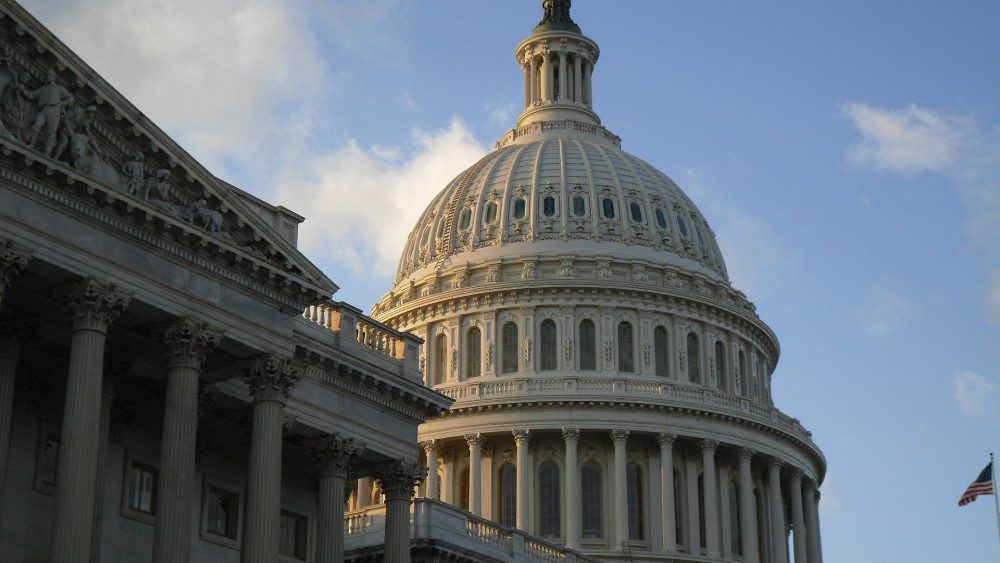
On July 27, legislation was introduced in the U.S. Senate that would implement a lifetime ban on Members of Congress from ever becoming lobbyists. The Close the Revolving Door Act, introduced by Sen. Jon Tester, aims to provide greater controls […]
On July 27, legislation was introduced in the U.S. Senate that would implement a lifetime ban on Members of Congress from ever becoming lobbyists.
The Close the Revolving Door Act, introduced by Sen. Jon Tester, aims to provide greater controls and restrictions on revolving door lobbying.
Additionally, the bill would ban lobbyists from working for members of Congress and Committees with whom they had a substantial lobbying contact in the previous six years; create a website entitled lobbyists.gov for searchable disclosures on lobbying activities; and increase penalties for violating the Lobbying Disclosure Act (LDA) from $200,000 to $500,000.
Lobbying firms paying former members of Congress or senior congressional staff as employees, contractors, or for consulting services would have increased disclosure requirements under the LDA.
“I came to the Senate to fight for working families and defend our Montana way of life, and I don’t think any Member of Congress should cash out on the privilege of public service,” said Tester in his press release.
October 3, 2022 •
U.S. Senate Passes Disclosing Foreign Influence in Lobbying Act

On September 29, the United States Senate passed the Disclosing Foreign Influence in Lobbying Act. The legislation, Senate Bill 4254, amends the Lobbying Disclosure Act of 1995 to require those registering as federal lobbyists include in their disclosures “the name […]
On September 29, the United States Senate passed the Disclosing Foreign Influence in Lobbying Act.
The legislation, Senate Bill 4254, amends the Lobbying Disclosure Act of 1995 to require those registering as federal lobbyists include in their disclosures “the name and address of each government of a foreign country (including any agency or subdivision of a foreign government, such as a regional or municipal unit of government) and foreign political party, other than the client, that participates in the direction, planning, supervision, or control of any lobbying activities of the registrant.”
The bill, which passed by unanimous consent, next moves to the U.S. House of Representatives.
July 18, 2022 •
Bipartisan Bill Introduced in U.S. Senate to Stop Federal Security Contractors’ Conflict of Interests

A bipartisan bill was introduced into the U.S. Senate aimed at increasing federal oversight to prevent national security consulting firms from contracting both with the United States and countries like Russia and China. Senate Bill 4516, Obstructive National Security Underreporting […]
A bipartisan bill was introduced into the U.S. Senate aimed at increasing federal oversight to prevent national security consulting firms from contracting both with the United States and countries like Russia and China.
Senate Bill 4516, Obstructive National Security Underreporting of Legitimate Threats (CONSULT), introduced by Republican U.S. Senator Joni Ernst and Democratic Senators Maggie Hassan and Gary Peters, would require consulting firms to disclose any potential organizational conflict of interest with certain entities, such as beneficial ownership, active contracts, contracts held within the last five years, and any other relevant information with foreign adversarial entities or governments. In turn, it would also allow for these conflicts of interest to be grounds for denial of a contract, or for the suspension and debarment of a contractor.
The bill, introduced on July 13, would also require the Federal Acquisition Regulatory Council to update federal acquisition regulations for implementation and calls for a government-wide policy to mitigate and eliminate organizational conflict of interests relating to national security.
According to Senator Hassan’s press release, “The CONSULT Act comes after reports surfaced that the consulting firm McKinsey & Company was providing strategic advice for state-owned companies in China and Russia while also being awarded national security contracts by the United States. These Chinese and Russian entities include a handful that have been blacklisted by federal agencies.”
January 21, 2022 •
Ban Corporate PACs Act Introduced in U.S. Senate
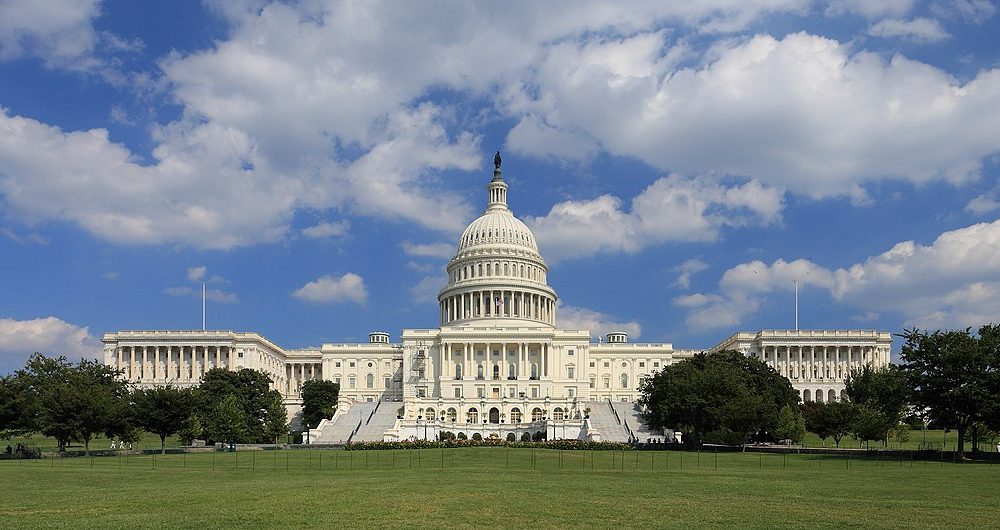
US Capitol - by Martin Falbisoner via Wikimedia Commons
On January 20, U.S. Sen. Mark Kelly introduced the Ban Corporate PACs Act. The legislation, Senate Bill 3528, amends the Federal Election Campaign Act of 1971 to eliminate the ability of for-profit corporations to establish and manage separate segregated funds […]
On January 20, U.S. Sen. Mark Kelly introduced the Ban Corporate PACs Act.
The legislation, Senate Bill 3528, amends the Federal Election Campaign Act of 1971 to eliminate the ability of for-profit corporations to establish and manage separate segregated funds (i.e., PACs) or solicit contributions from corporate stockholders. It also requires existing corporate PACs, of a type that would no longer be permitted under this Act, be terminated and their funds be fully disbursed within one year after enactment of the Act.
May 26, 2021 •
U.S. Senate Bill Introduced Following FEC’s Recommendation to Prohibit Unintentional Recurring Contributions

US Capitol - by Martin Falbisoner via Wikimedia Commons
On May 24, a bill was introduced in the U.S. Senate to prohibit political campaigns from using tactics that unwittingly enter donors into recurring contributions. The legislation, Senate Bill 1786, was created in response to a unanimous Federal Election Commission […]
On May 24, a bill was introduced in the U.S. Senate to prohibit political campaigns from using tactics that unwittingly enter donors into recurring contributions. The legislation, Senate Bill 1786, was created in response to a unanimous Federal Election Commission (FEC) legislative recommendation sent to Congress earlier this month.
Titled the “Rescuing Every Contributor from Unwanted Recurrences” (RECUR) Act, the bill amends the Federal Election Campaign Act of 1971 to ban political campaigns from using pre-checked recurring donation boxes, to create a new opt-in requirement for contributors to affirmatively consent to recurring charges, and to require political committees or campaigns to inform contributors about how to cancel recurring contributions and to cancel recurring contributions immediately upon request.

US Capitol - by Martin Falbisoner via Wikimedia Commons
The apportionment of seats for the U.S. House of Representatives, based on the newly released 2020 U.S. Census data, will soon be updated for the 118th Congress, which convenes in January 2023. On April 26, Secretary of Commerce Gina Raimondo […]
The apportionment of seats for the U.S. House of Representatives, based on the newly released 2020 U.S. Census data, will soon be updated for the 118th Congress, which convenes in January 2023. On April 26, Secretary of Commerce Gina Raimondo delivered the U.S. Census population count results to President Joseph Biden for use in apportioning the seats in the U.S. House of Representatives.
Texas will gain two seats in the House, while Colorado, Florida, Montana, North Carolina, and Oregon will each gain one seat.
California, Illinois, Michigan, New York, Ohio, Pennsylvania, and West Virginia will each lose one seat.
The remaining states’ number of seats will remain the same.
The U.S. Census Bureau announced the resident population of the United States increased overall by 7.4%.
March 22, 2021 •
SB1, For the People Act, Introduced in Senate while HR1, Passed in House, also in Senate

US Capitol - by Martin Falbisoner via Wikimedia Commons
On March 17, a comprehensive bill aimed at reforming U.S. campaign finance, lobbying, and ethics laws, and improving voter rights and election integrity, was introduced in the U.S. Senate. The sweeping bill, Senate Bill 1, For the People Act of […]
On March 17, a comprehensive bill aimed at reforming U.S. campaign finance, lobbying, and ethics laws, and improving voter rights and election integrity, was introduced in the U.S. Senate. The sweeping bill, Senate Bill 1, For the People Act of 2021, is companion legislation to House Bill 1, which passed the House on March 3. That bill, also called the For the People Act of 2021, was received in the Senate on March 11.
The bill would require the registration as a federal lobbyist for those counseling in support of lobbying contacts; require super PACs, 501(c)4 groups and other organizations spending money in elections and on judicial nominations to disclose donors who contribute more than $10,000; and, under the definitions of the Federal Election Campaign Act, add “paid internet or paid digital communication” to the definition of public communication and add “qualified internet or digital communication” to the definition of electioneering communication.
The bill creates a reporting requirement under campaign finance laws for disclosing certain foreign contacts and creates an obligation for political committees to notify the Federal Bureau of Investigation and the Federal Election Commission of those contacts. It also prohibits foreign nationals from participating in decision-making about contributions or expenditures by corporations and other entities; prohibits the establishment of a corporation to conceal election contributions and donations by foreign nationals; and requires foreign agents to disclose transactions involving things of financial value conferred on officeholders.
The bill defines the prohibited coordination between campaigns and super PACs, includes creating a “coordinated spender” category in the law to ensure single-candidate super PACs do not operate as arms of candidates, and defines the prohibited coordination between campaigns and super PACs. The bill would repeal existing prohibitions on the Securities and Exchange Commission from finalizing rules to afford shareholders the opportunity to know about the political spending of publicly traded companies and would require shareholder authorization before a public company may make certain political expenditures. It would also repeal existing prohibitions on the executive branch from promulgating rules to require government contractors to disclose all of their political spending.
The bill requires presidential inauguration committees to disclose their expenditures, limits aggregate contributions, and restricts funds being used for purposes unrelated to an inauguration. Additional measures in the bill include a publicly financed 6-1 matching system on small-dollar donations for Senate and presidential candidates, more ethics changes to the executive branch, and substantial changes to federal election law and voter rights.
February 4, 2021 •
Spotlight Act: US Senate Bill to Enhance Disclosure of Financial Political Activity Reintroduced

US Capitol - by Martin Falbisoner via Wikimedia Commons
On February 3, U.S. Senators Jon Tester and Ron Wyden reintroduced a bill to reverse a U.S. Treasury Department’s decision limiting IRS disclosure requirement of certain tax-exempt organizations engaging in political activities. Senate Bill 215, the Spotlight Act, requires non-profit […]
On February 3, U.S. Senators Jon Tester and Ron Wyden reintroduced a bill to reverse a U.S. Treasury Department’s decision limiting IRS disclosure requirement of certain tax-exempt organizations engaging in political activities.
Senate Bill 215, the Spotlight Act, requires non-profit organizations engaging in political activity, such as donating to candidates and purchasing political ads, provide the IRS with the names and basic information of donors who contribute more than $5,000.
The bill repeals an IRS revenue procedure exempting certain tax-exempt organizations that are not 501(c)(3) organizations from the requirement to report the names and addresses of substantial contributors (persons who contribute more than $5,000 per year) on information returns that are filed with the IRS. The proposed legislation requires tax-exempt organizations falling under sections 501(c)(4), 501(c)(5), and 501(c)(6) of the Internal Revenue Code (e.g., social welfare organizations, labor organizations, business leagues) to disclose the names and addresses of all substantial contributors on their returns. The bill also eliminates the authority of the IRS to provide exceptions to the disclosure requirements for tax-exempt organizations.
A version of the Spotlight Act was first introduced by the Senators in 2018
December 9, 2020 •
US Senate Confirms Three New Commissioners to the FEC
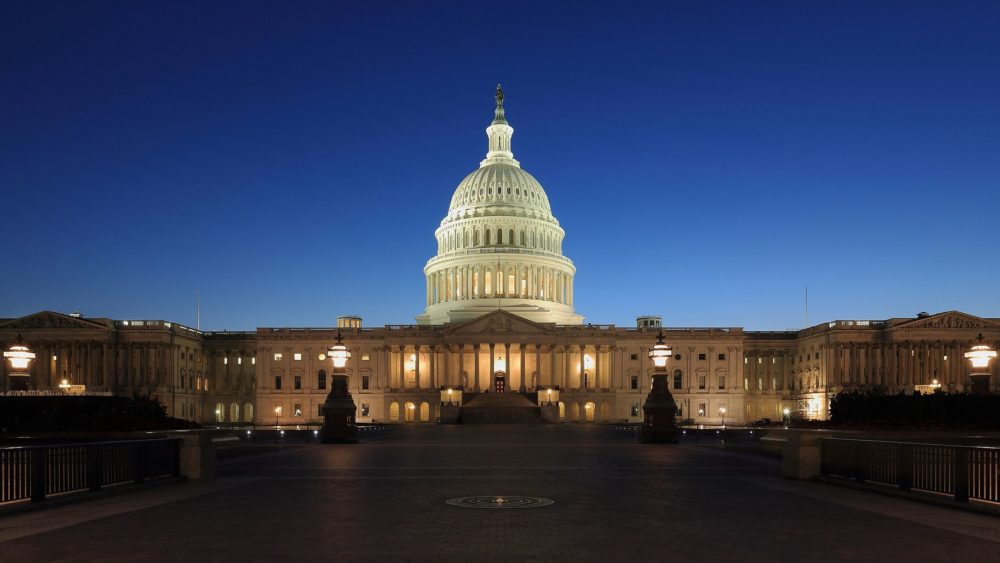
U.S. Capitol - by Martin Falbisoner
On December 9, the U.S. Senate restored a full complement of commissioners to the Federal Election Commission (FEC). By confirming three new commissioners, the FEC, where only three of the agency’s six seats were filled since July 4, will now […]
On December 9, the U.S. Senate restored a full complement of commissioners to the Federal Election Commission (FEC).
By confirming three new commissioners, the FEC, where only three of the agency’s six seats were filled since July 4, will now be able to conduct official business. The FEC requires at least four commissioners to agree on any official action.
The Senate confirmed one Democrat, Shana Broussard, and two Republicans, Sean Cooksey and Allen Dickerson. No more than three members of the FEC may be registered with the same political party.
The remaining FEC commissioners are Chair James E. “Trey” Trainor III, a Republican, Ellen L. Weintraub, a Democrat, and Steven T. Walther, an Independent.
May 20, 2020 •
Senate Confirms Commissioner to FEC, Restoring Quorum

U.S. Capitol - by Martin Falbisoner
On May 19, the U.S. Senate confirmed President Trump’s nominee to the Federal Election Commission (FEC), restoring a quorum for the agency. With the confirmation of James “Trey” Trainor, the FEC now has four commissioners, which meets the minimum […]
On May 19, the U.S. Senate confirmed President Trump’s nominee to the Federal Election Commission (FEC), restoring a quorum for the agency.
With the confirmation of James “Trey” Trainor, the FEC now has four commissioners, which meets the minimum threshold of commissioners required for any official action.
The Commission has two registered members of the Republican Party, one registered member of the Democratic Party, and one Independent.
Trainor is a lawyer licensed in Texas who specializes in election law, campaign finance, and ethics.
Trainor previously served in the president’s administration as a Special Assistant to the Secretary of Defense, James Mattis, in the Department of Defense, Office of General Counsel.
Trump had originally nominated Trainor to serve as a commissioner in 2017, but a hearing in the Senate was never held.
Two seats on the FEC still remains vacant.
March 6, 2020 •
Nomination for Fourth FEC Commissioner to be Considered
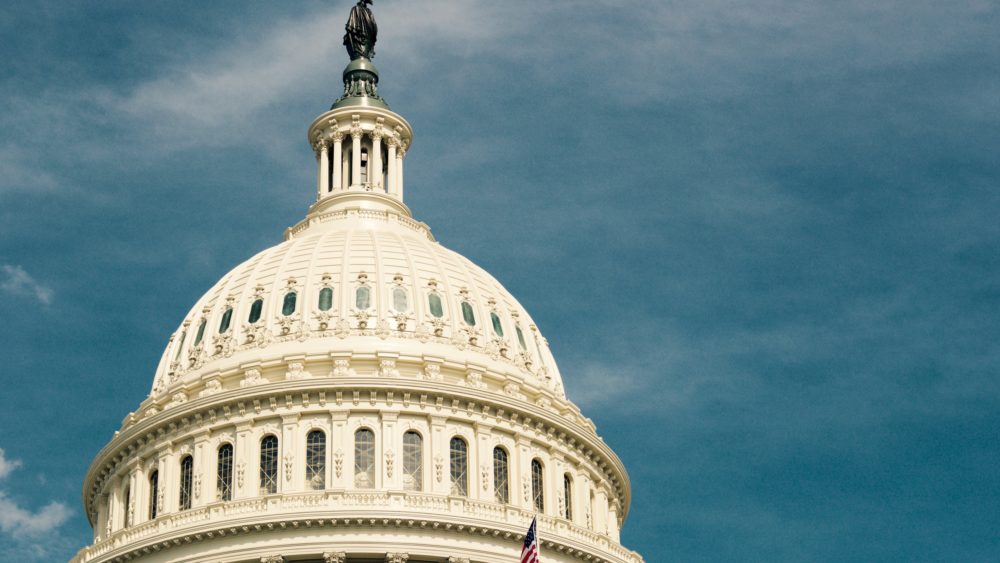
On March 10, the U.S. Senate Rules and Administration Committee will hold a nomination hearing. This will comprise of the full committee to consider James “Trey” Trainor as a commissioner on the Federal Election Commission (FEC). Trainor is a […]
On March 10, the U.S. Senate Rules and Administration Committee will hold a nomination hearing.
This will comprise of the full committee to consider James “Trey” Trainor as a commissioner on the Federal Election Commission (FEC).
Trainor is a lawyer licensed in Texas who specializes in election law, campaign finance, and ethics.
Trainor previously served in the president’s administration as a Special Assistant to the Secretary of Defense, James Mattis, in the Department of Defense, Office of General Counsel.
President Donald J. Trump had originally nominated Trainor to serve as a commissioner in 2017, but a hearing was never held.
Currently the FEC, which has three of its six commissioner positions vacant, does not have a quorum to take most formal measures.
The FEC requires at least four commissioners to agree on any official action.
To become a commissioner, Trainor must be confirmed by the full U.S. Senate.
November 7, 2018 •
Democrats Take House While Republicans Keep Senate
On November 6, voters gave Democrats the majority control of the U.S. House of Representatives while keeping Republicans firmly in control of the Senate. With early elections results in, it appears clear Democrats have gained at least 26 seats, giving […]
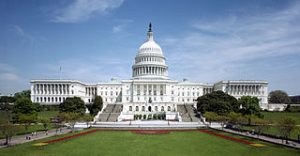 On November 6, voters gave Democrats the majority control of the U.S. House of Representatives while keeping Republicans firmly in control of the Senate.
On November 6, voters gave Democrats the majority control of the U.S. House of Representatives while keeping Republicans firmly in control of the Senate.
With early elections results in, it appears clear Democrats have gained at least 26 seats, giving them more than the 218 seats required in the House for a majority.
In the Senate, Republicans gained two seats, ensuring their control of the Senate.
Republicans may possibly increase their majority in the Senate when the final votes are counted.
September 27, 2018 •
US Senate Joint Resolution Seeks to Reverse IRS Disclosure Exemption for Certain Tax-Exempt Organizations
On September 24, U.S. Senators Jon Tester and Ron Wyden introduced a resolution to reverse a U.S. Treasury Department’s decision limiting IRS disclosure requirements of certain tax-exempt organizations engaging in political activities. On July 16, the U.S. Treasury Department and […]
 On September 24, U.S. Senators Jon Tester and Ron Wyden introduced a resolution to reverse a U.S. Treasury Department’s decision limiting IRS disclosure requirements of certain tax-exempt organizations engaging in political activities.
On September 24, U.S. Senators Jon Tester and Ron Wyden introduced a resolution to reverse a U.S. Treasury Department’s decision limiting IRS disclosure requirements of certain tax-exempt organizations engaging in political activities.
On July 16, the U.S. Treasury Department and the IRS announced certain tax-exempt organizations are no longer required to report the names and addresses of contributors on their annual reports.
This exemption from reporting applies to tax-exempt organizations generally not receiving tax-deductible contributions, such as the National Rifle Association, labor unions, volunteer fire departments, issue-advocacy groups, local chambers of commerce, veterans’ groups, and community service clubs. These organizations are still required to continue to collect and keep the donor information and to make it available to the IRS upon its request.
This exemption does not affect the information required to be reported by charities primarily receiving tax-deductible contributions, such as 501(c)(3) organizations, certain nonexempt private foundations, or 527 political organizations.
Senate Joint Resolution 64, The Spotlight Act, would overturn the exemption and require disclosure to the IRS of the names and information of donors who contribute more than $5,000.
September 4, 2018 •
Arizona Governor Names McCain Replacement
Gov. Doug Ducey has named Sen. Jon Kyl to fill the late Sen. John McCain’s seat in the Senate. Sen. Kyl represented Arizona in the Senate for close to 20 years before reaching retirement in 2013. Kyl has committed to […]
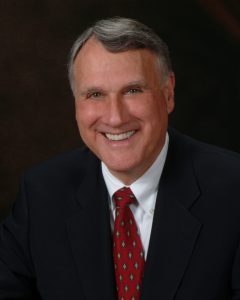 Gov. Doug Ducey has named Sen. Jon Kyl to fill the late Sen. John McCain’s seat in the Senate.
Gov. Doug Ducey has named Sen. Jon Kyl to fill the late Sen. John McCain’s seat in the Senate.
Sen. Kyl represented Arizona in the Senate for close to 20 years before reaching retirement in 2013. Kyl has committed to serving until the end of 2018, and possibly until a 2020 special election to fill the seat more permanently.
Gov. Ducey’s office reportedly considered several replacements since Sen. McCain’s diagnosis 13 months ago, including his wife Cindy McCain.
Gov. Ducey is the first governor in Arizona’s 106-year history to fill a U.S. Senate seat by appointment.
State and Federal Communications, Inc. provides research and consulting services for government relations professionals on lobbying laws, procurement lobbying laws, political contribution laws in the United States and Canada. Learn more by visiting stateandfed.com.

